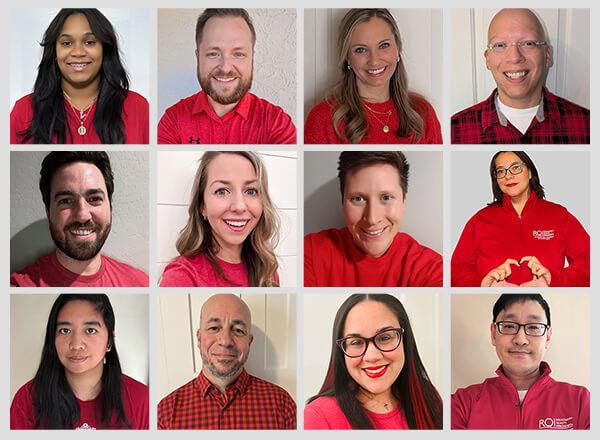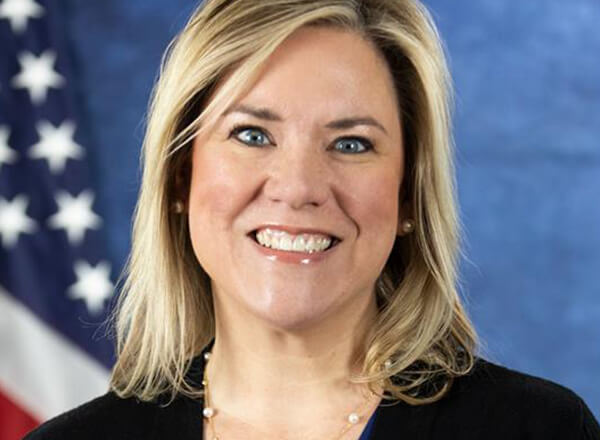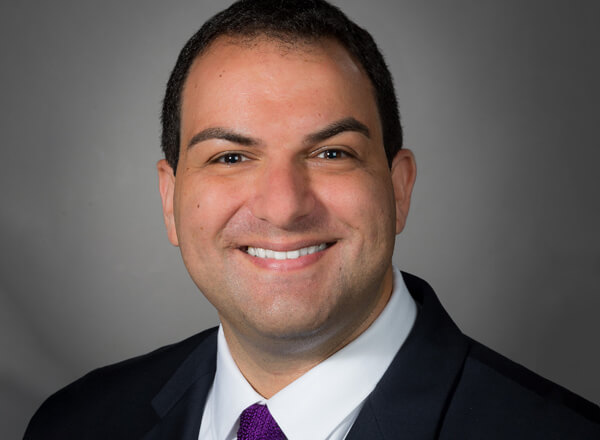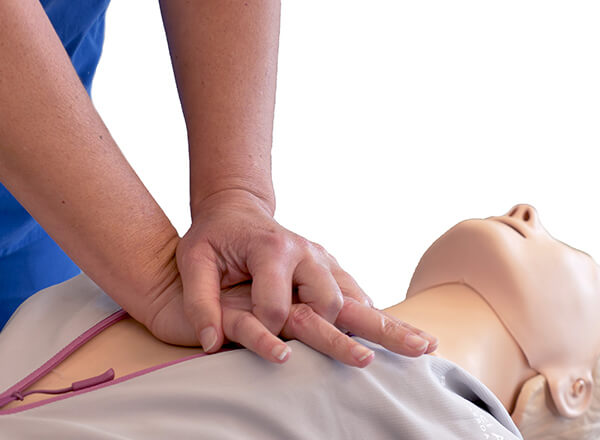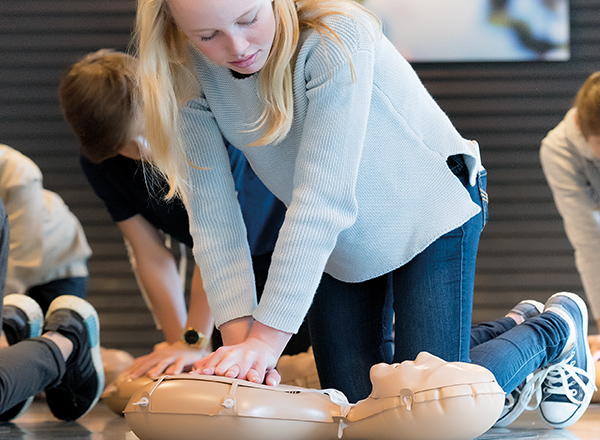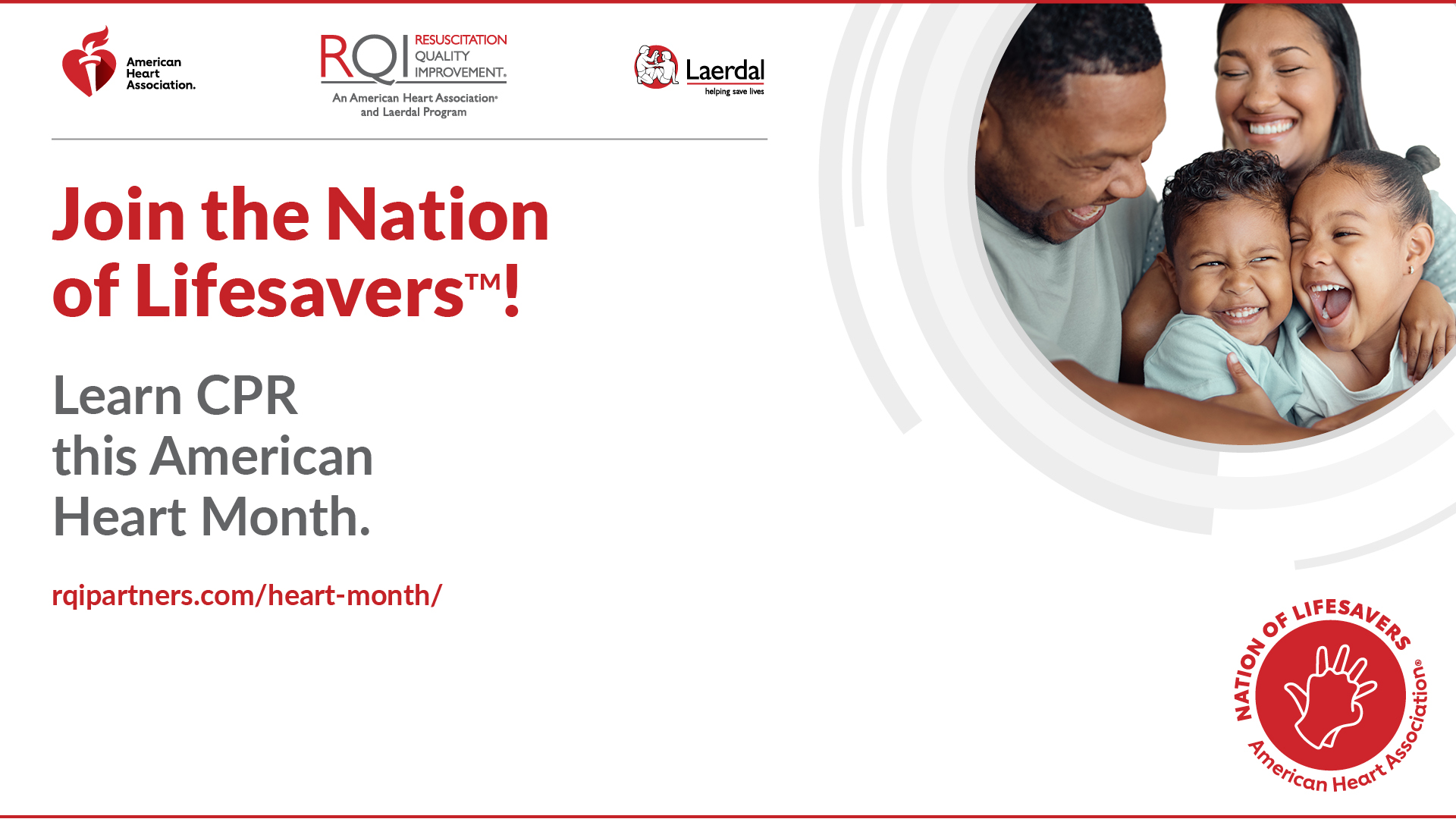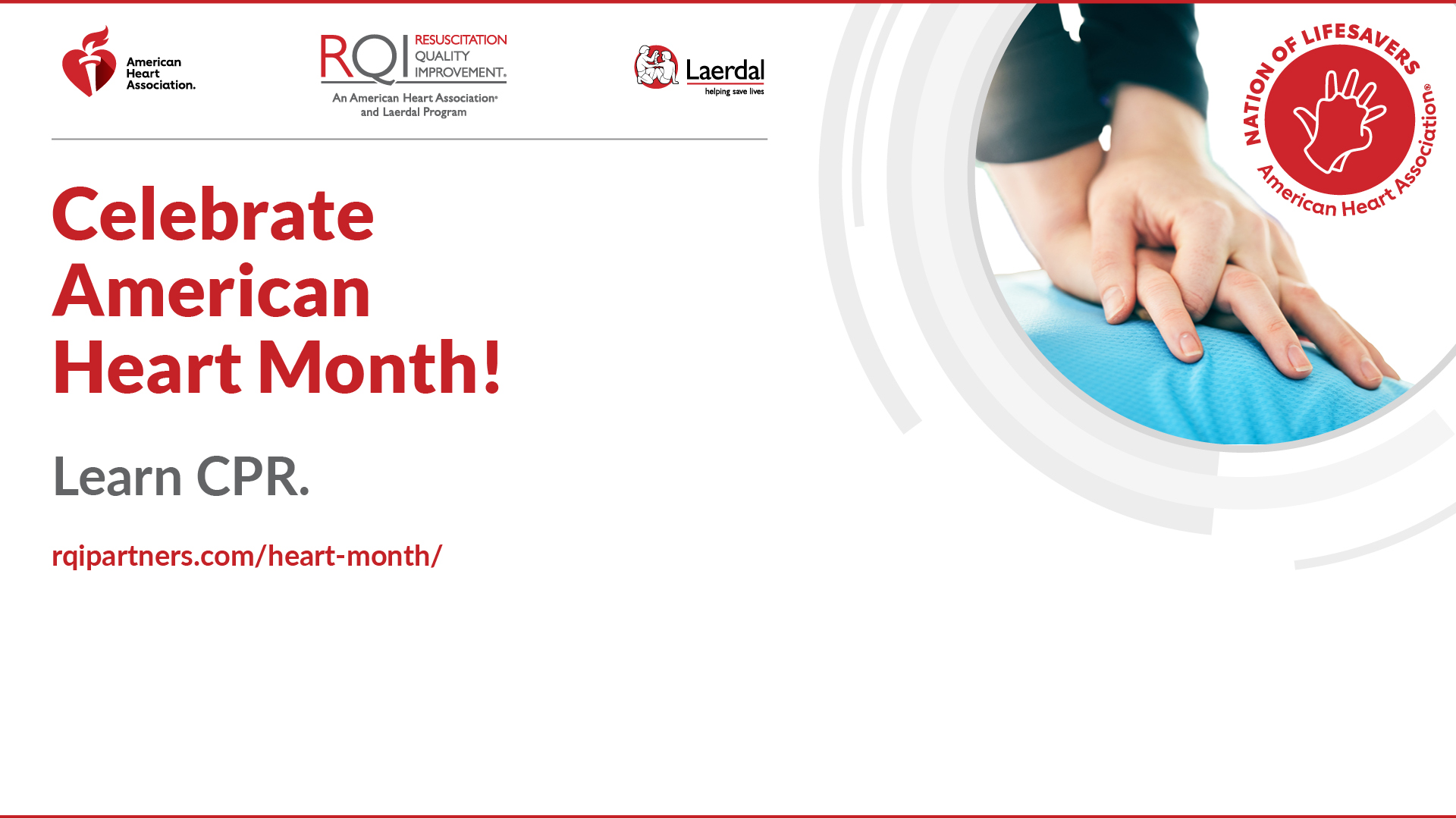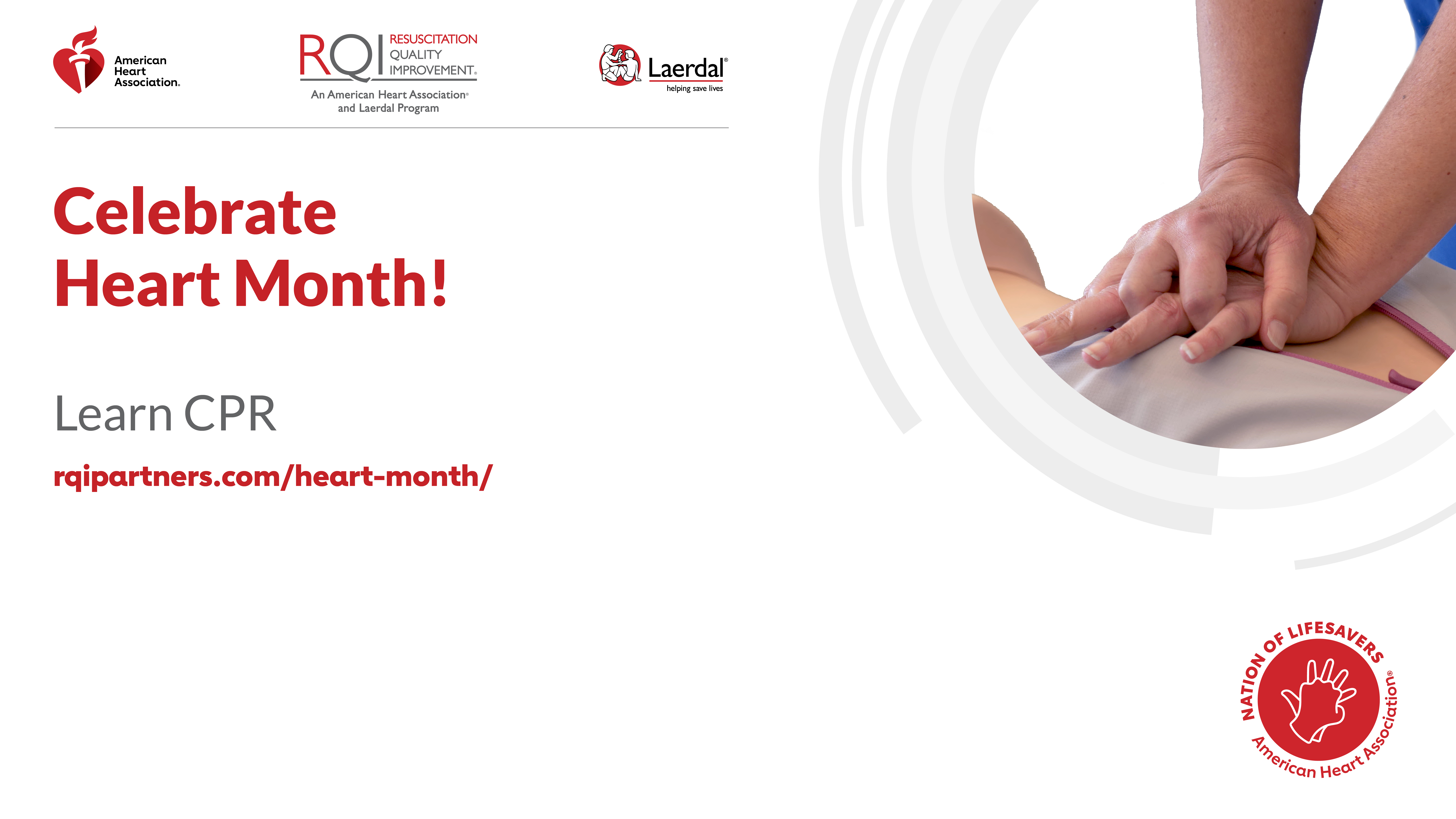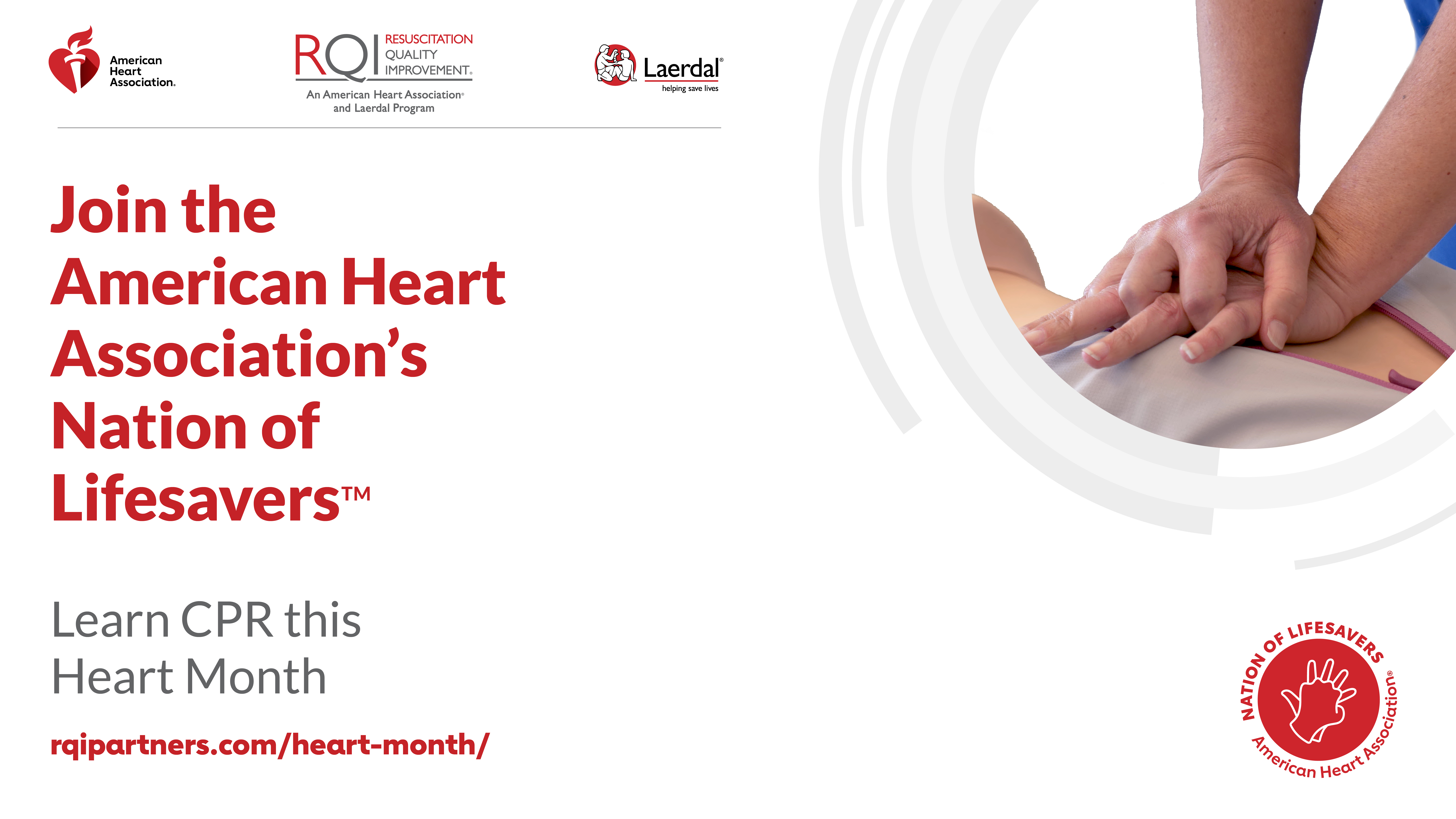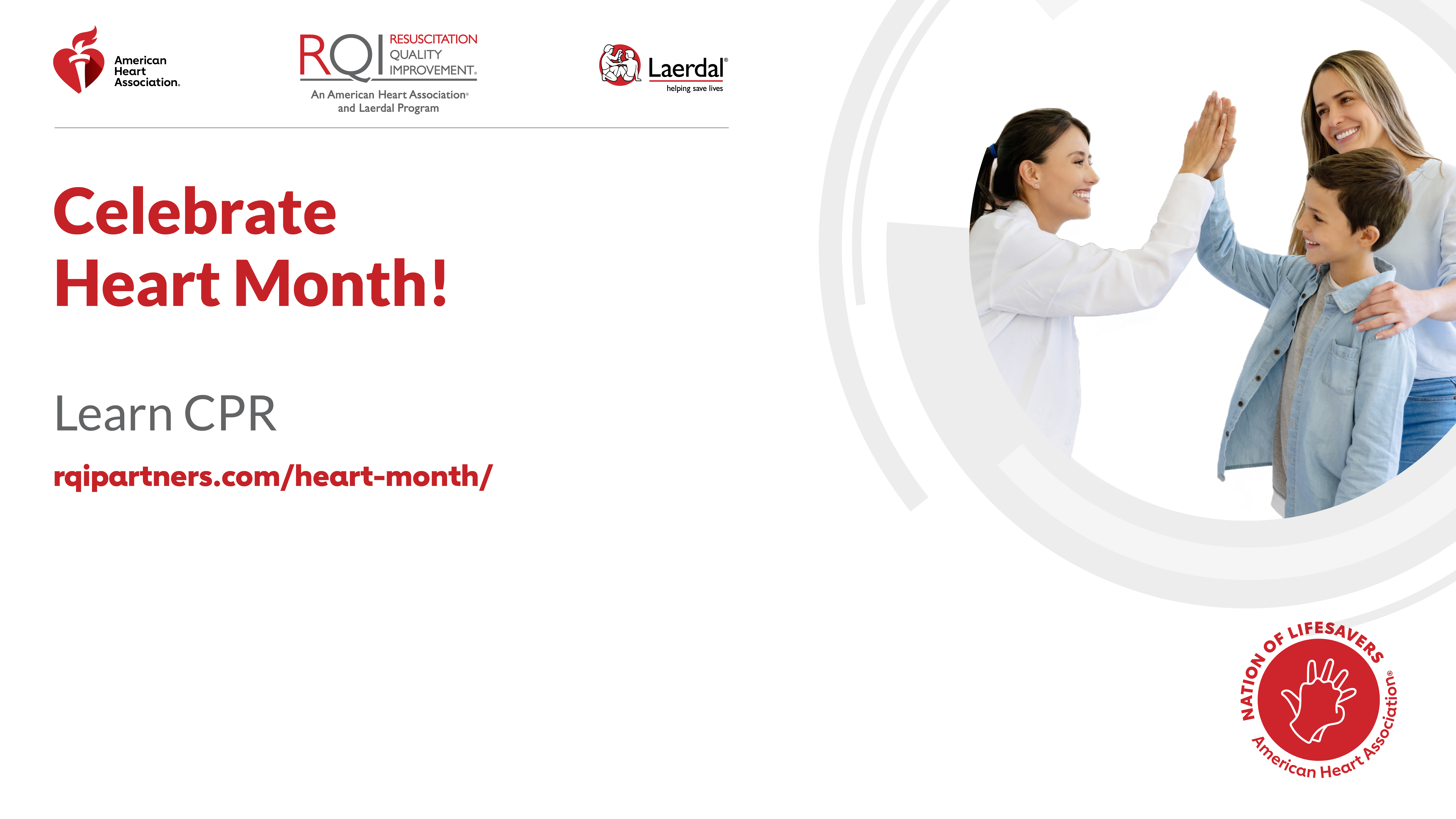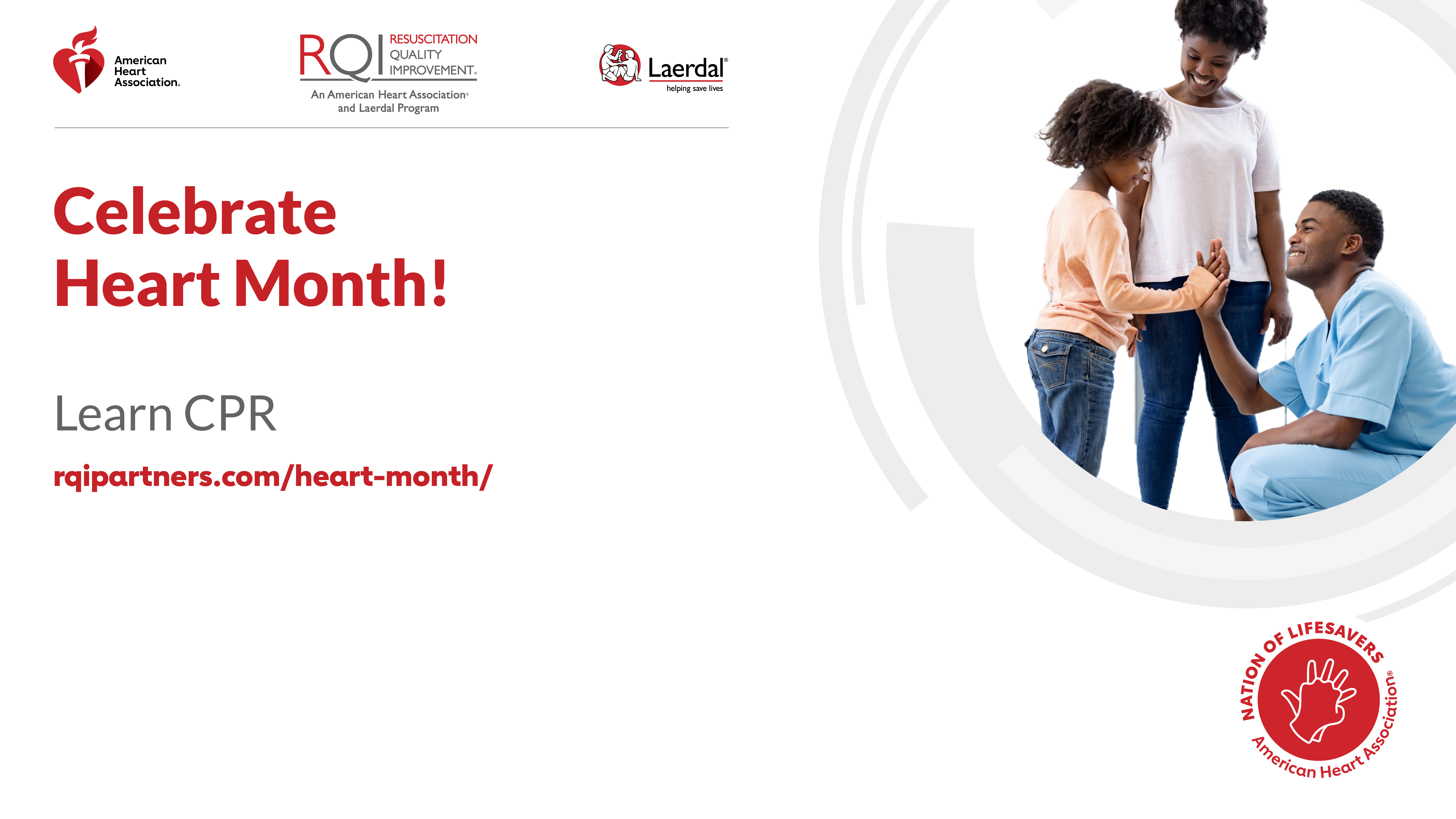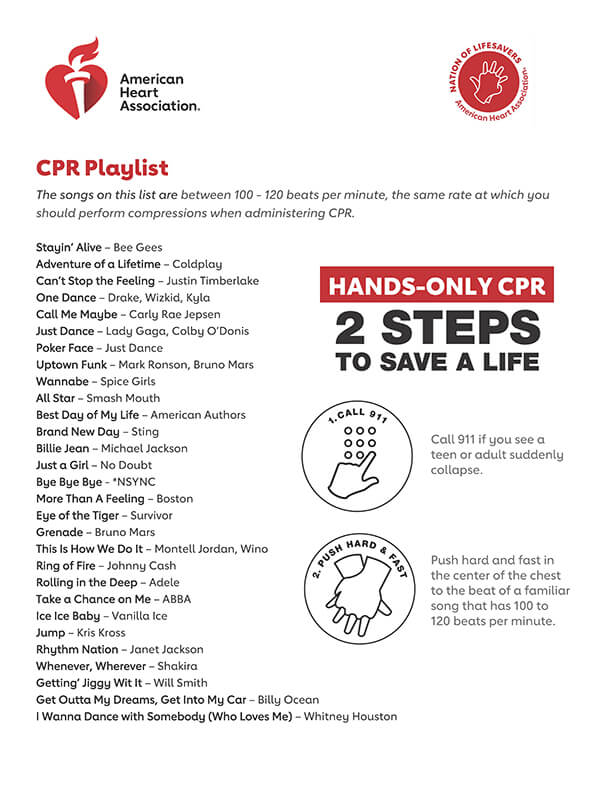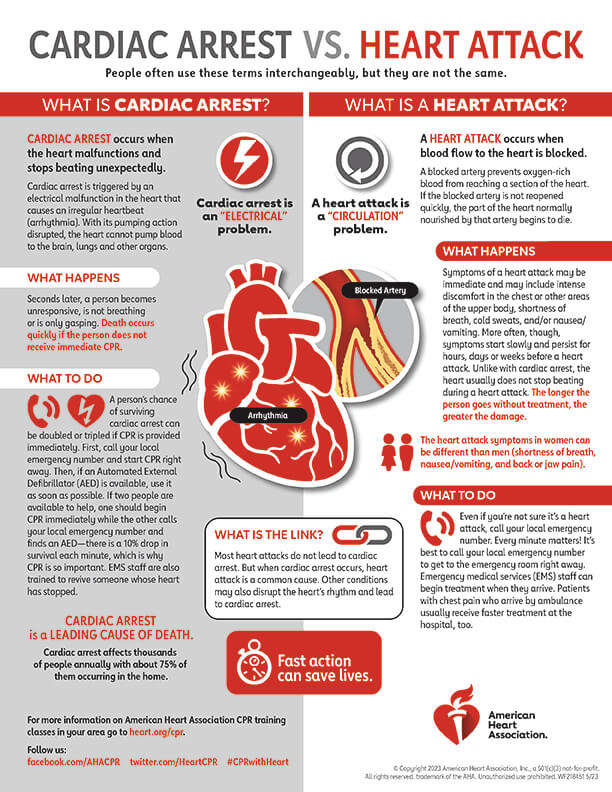Join Us in Celebrating Heart Month
Each February, American Heart Month is observed to remind Americans to focus on heart health, share the necessity of CPR training, ultimately creating a Nation of Lifesavers™.
Create a Nation of Lifesavers
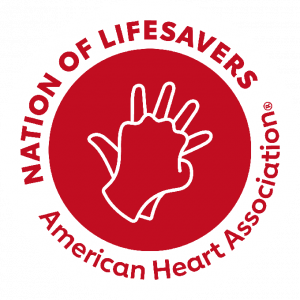
The American Heart Association has set a goal of doubling the survival of cardiac arrest by 2030. However, to save more lives from the 350,000 out-of-hospital cardiac arrests that occur each year, the number of individuals equipped to respond with high-quality CPR must increase.
By turning bystanders into lifesavers, we’re ensuring that anyone, anywhere is prepared and empowered to become a vital link in the chain of survival.
Learn more about the Nation of Lifesavers and how to make a lifesaving impact in your community!
The Impact of Cardiac Arrest
- Each year, more than 350,000 cardiac arrests occur outside of the hospital in the United States.
- More than 23,000 children experience cardiac arrest outside of the hospital each year. 40% of those are related to sports and nearly 20% are infants.
- About 70% of cardiac arrests that happen outside of a hospital happen at home.
- Only about 41% of people who experience cardiac arrest receive CPR from people nearby while waiting for emergency responders to arrive.
- If started immediately, for adults and teens, hands-only CPR can double or even triple the chance of survival.

Heart Month Education
Each week, RQI Partners will share information, education and more on our RQI Partners Blog. Featuring team member testimonials on who they #WearRed for, a story of cardiac arrest survival from one Ohio nurse, research regarding adolescent athletes and cardiac arrest screening, and new legislation providing far-reaching access to CPR training and AEDs in schools. Visit back each week to read the newest article!
This #WearRedDay, our RQI Partners’ team members were asked who they wear red for and why.
Read Now about Why Do You “Wear Red?”
Read how one nurse’s quick thinking and action made a lifesaving impact.
Read Now about Bravery in Action: Nurse Saves Child at Middle School Dance
Dr. Robert Spencer of Northwell Health shares his insights on athlete screening and sudden cardiac death.
Read Now about Q&A with Dr. Robert Spencer: Understanding Athlete Screening and Sudden Cardiac Death
The Cardiomyopathy HEARTS Act aims to improve CPR education, training, and resources in schools nationwide.
Read Now about The HEARTS Act: Improving the Chain of Survival Across U.S. Schools
Matt Wanex, Senior Therapist and Program Manager at the Center for Rehab Medicine at Acute Care Greater Baltimore Medical Center, was on vacation with his family when he found his father-in-law unresponsive one night. Wanex performed CPR to revive his life.
RQI education helped Laura Holden, a Nurse Practitioner with the Connector Service at Primary Children’s Hospital Intermountain Healthcare, leap into action to sustain the life of her aunt until she was able to get the medical attention needed at a hospital.
Christiana Adams, who works at Salem Health, was forced to put her RQI skills to the test when, while out on a walk, saw an individual down and resuscitated them. She credits RQI with giving her the ability to properly perform CPR, enabling her to save a life.
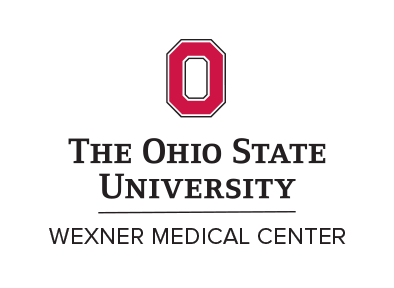
Watch Now the On-Demand Webinar: Five Keys to Help Improve Patient Outcomes and Operational Success for Academic Medical Centers”
Exclusive Webinar
Five Keys to Help Improve Patient Outcomes and Operational Success for Academic Medical Centers
Covering its strategic plans, key result areas and challenges it has faced during its ongoing growth and development as a premier health system, OSUWMC will share best practices you can implement at your own institution in 2025.
From reducing operating expenses to improving quality of care to leading a world-class resuscitation program, come join your peers for an insightful learning experience.
Resources for Download
For RQI Community members, please visit the Resuscitation User Network (RUN) to access additional resources available to you. Sign in here





